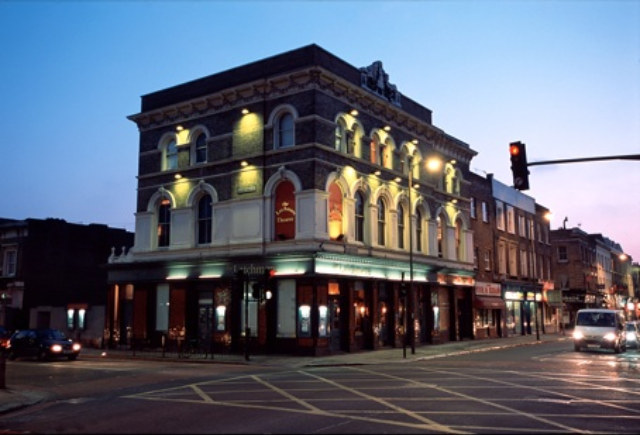Artistic Director Lisa Parry writes:
The running order has been decided! Our dramaturg Louise Stephens Alexander has juggled actors, rehearsal locations and themes to fix our schedule.
So if you're at Chapter on February 17, Theatre503 on February 19 or The Arches on February 22, you'll see work by the following writers: Sam Burns, Vittoria Cafolla, Poppy Corbett, Clare Duffy, Samantha Ellis, Marged Parry.
And if you're at Chapter on February 18, Theatre503 on February 20 or The Arches on February 23, you'll see work by these writers: Ioanna Anderson, Branwen Davies, Sarah Grochala, Lisa Parry, Morna Pearson, Lindsay Rodden.
Obviously, we hope you come to both!
We've been running a campaign on twitter using the #a160feb hashtag where the writers have been revealing a word they think encapsulates their play. We also asked the writers to give us a sneak-peek into their plays. Below is what they came up with.
And don't forget to book! All booking links are on our website:
www.agent160theatre.co.uk.
Poppy Corbett
Ioanna Anderson – How To Be A Pantomine
Horse
In an air accident, the normal rules of
human behaviour are suspended; people behave in unexpected and sometimes
unpredictable ways. In this darkly funny, surreal and moving two-hander, an air
crash throws two women into an impromptu but vital partnership.
Sam Burns - Amnesty
‘You cross with me?’ she says. ‘Sort
of’, I says. ‘Cause I done a good deed with my knife.’ Grace, 16,
hoarder of Lego, knows she has to surrender her number one favourite possession
in the whole entire world, but fate’s not making it easy. And Grace can’t give
anything away.
Sarah Grochala
Vittoria Cafolla – The Last Word
Paedar and Phoebe are in Pompeii, but are
the city's ruins the only ones they're exploring? And just how important is it
to have the final say in an argument? All is not as it seems when both compete
to have the last word.
Poppy Corbett - Branded
Meet Kaitlin, the Store Image Director. She
strictly enforces the brand of the store, but is there more to being a woman
than a brand? Branded explores power games in
the work place and in the world.
Branwen Davies - Genki
A woman finds herself
in limbo in no man's land surrounded by battered boxes and a suitcase full of
photos, memories and stuff that no longer make sense. They don't belong here
but where does she belong?
Clare Duffy – How Do You Sleep At
Night?
For three years, Abi has been protesting
outside the home of a retired chief executive of a zombie bank. But today, at
4am, the executive’s insomniac wife comes to make Abi an offer.
Morna Pearson
Samantha Ellis - Noura
Can ice cream be chewy? Can bellydancers turn into
birds? Can you be homesick for a place you haven't been to? And if you can,
what's the cure? A shapeshifting dancer meets a mixed-up Iraqi refugee in this
play about who we are and who we want to be.
Sarah Grochala - Red Shoes
And it don’t matter that I ain’t had no
tummy tuck caesarean, no postnatal Pilates. Cos I’m thinking it don’t matter
what you got, you got it, when you got shoes like that.
Kaz has found the answer to all her
problems, a pair of shoes, a pair of red Christian Louboutin shoes. If she has
those shoes, she knows she can win her ex, Darren, back. All she needs now is
the money to buy them or the guts to steal them.
One night in London
when everything goes crazy, she finally gets her chance.
Lisa Parry - Nancy
Nancy lives in Sussex – the rural bit, not
Brighton – and is in financial straits. But it’s not just the bank she needs to
keep from her door; it’s the rabbits and moles too. But what has this to do
with the audience? And why is she on the Agent 160 tour?
Clare Duffy
Marged Parry – The Sweet Shop Stand
Off
Melisa's back in her home town and she's
not who she used to be. She seeks to salvage a time capsule that she buried
long ago with her childhood best friend Kevin. But why is Kevin so reluctant to
dig up the past?
Morna Pearson – Skin; or How To
Disappear
Robert hasn't left his house since Helen
Daniels from Neighbours died. Having pulled out every hair on his body, he has
started peeling off all of his skin. His day is interrupted by a visit from an
incapacity benefit assessor. Somebody's life is about to change.
Lindsay Rodden – A Modest Proposal
Something is rotten in
the world. But the butchery is far
beyond the border, and even if the cries and howls came over her own back
fence, Mrs Paula O’Neill wouldn’t hear them. Hasn’t she trouble enough, with
one runaway daughter, and a baby boy to grow up nice and fat? Eyes down, turn
the radio up, and get that dinner on. And eat every pick on that plate.






























